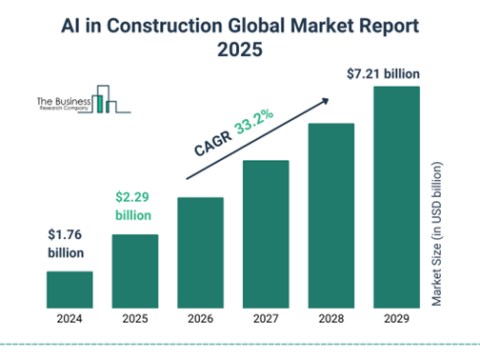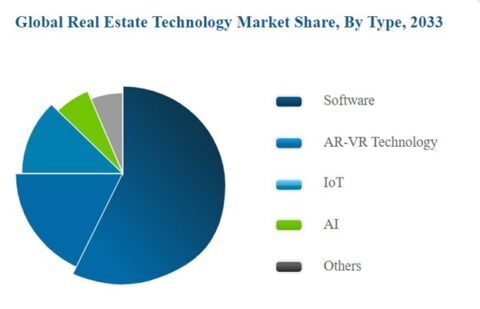Introduction
As Artificial Intelligence (AI) continues to transform industries worldwide, its influence on the real estate sector is becoming increasingly significant. This overview examines ten interconnected AI trends that are revolutionizing the property market today and are poised to shape its development through 2030. These trends range from personalized property search engines and data-driven investment tools to predictive urban planning and sustainable development. Together, they demonstrate how AI is driving greater efficiency, transparency, inclusivity, and environmental responsibility within real estate.
These trends are deeply linked: hyper-personalized searches depend on AI-generated market data; predictive maintenance supports sustainability efforts; urban planning technologies guide investment decisions; and legal systems need to adapt to advanced construction methods. Central to this transformation is Egypt’s preparedness and strategic ambition to become a leading regional center for AI-driven real estate. The overview integrates current data, international benchmarks, and Egypt’s national initiatives to present a unified vision of opportunity and innovation.
- Hyper-Personalized Property Search Experiences
AI is revolutionizing the way people search for properties by offering hyper-personalized user experiences. Through behavioral analytics, search history, and predictive modeling, AI can curate listings that align with a user’s preferences, budget, and lifestyle needs. According to Realtor.com, 70% of buyers prefer AI-enhanced virtual reality tools for property viewing over traditional in-person methods.
This shift not only streamlines the buyer journey but also boosts conversion rates for sellers and platforms. By 2030, we can expect AI to integrate real-time data such as neighborhood development, infrastructure upgrades, and pricing volatility, making the search process even more intelligent.
- AI-Enhanced Urban Planning and Smart City Development
AI is a game-changer in urban planning, helping cities simulate infrastructure scenarios, optimize zoning, and forecast population density trends. A survey showed that over half of the 250 cities – Almost 50% – of global cities already employ AI tools in urban design, with that number expected to rise to 83% by 2026.
Using AI techniques like, machine learning, robotic process automation, GenAI and Agentic AI solutions also set to increase in prevalence. This trend ensures future cities are not only livable but scalable and sustainable. It also influences property valuation and long-term investment potential.
- Predictive Valuation Models and Real-Time Market Forecasting
Predictive analytics enable real estate professionals to value properties more accurately and forecast market shifts with greater confidence. For instance, a real estate data science project utilizing machine learning models like CatBoost achieved an accuracy of 95% in estimating property values, with a 5% margin of error. Additionally, AI-driven platforms such as Zillow’s Zestimate have reported median error rates of 1.94% for on-market homes, indicating a high level of accuracy in property valuation.
AI-driven insights allow developers and investors to preempt downturns and capitalize on high-growth zones, making the sector more resilient and responsive.
- AI Integration in Construction and Modular Development
AI is streamlining construction through automated machinery, predictive safety systems, and smart modular design. AI-supported modular construction can reduce build times, cut costs, and improve site safety. This allows for faster deployment of housing in underserved regions and supports large-scale urban development.

The AI in construction market size has grown exponentially in recent years. It grows from $1.76 billion in 2024 to $2.29 billion in 2025 at a compound annual growth rate (CAGR) of 30.0%. Forecasting to see exponential growth in the next few years. Expected to reach $7.21 billion in 2029 at a compound annual growth rate (CAGR) of 33.2%.
- Virtual & Augmented Reality Powered by AI for Property Sales
AI-enhanced VR/AR platforms are redefining property sales, allowing buyers to experience virtual walkthroughs and 3D modeling from their devices. In 2023, virtual tours increased by 50%, with 55% higher viewing engagement due to AI-based personalization.
The global market for real estate technology was valued at $50.3 billion in 2024 and is projected to grow to $407.52 billion by 2033, reflecting a compound annual growth rate (CAGR) of 26.17% between 2025 and 2033.

Among the key innovations driving this growth is augmented and virtual reality (AR/VR). These technologies are transforming the industry by offering immersive virtual property tours, allowing prospective buyers and renters to explore real estate remotely. This not only enhances user experience but also reduces time and costs while making it easier to connect with clients regardless of their location. By 2030, AI-powered VR/AR platforms are expected to become standard tools for real estate agents and developers, not just optional tech.
- AI-Driven Predictive Maintenance and Smart Building Management
AI-powered smart buildings are capable of detecting and resolving potential issues before they happen. In one case study featured by Time Magazine, the use of Brain Box AI in an office building in Manhattan resulted in a 15.8% decrease in HVAC energy usage, saving approximately $42,000 per year and reducing carbon emissions by 37 metric tons. Additionally, smart lighting systems that use sensors to respond to occupancy and natural light levels can lower energy use by as much as 35%.
These systems increase tenant comfort, reduce operational costs, and support sustainability by optimizing energy efficiency and maintenance scheduling.
- Green and Sustainable Real Estate Enabled by AI Optimization
Sustainability is no longer optional; it’s a requirement. AI helps monitor energy usage, reduce emissions, and streamline green building certifications. AI can reduce building energy consumption up to 20%.
Projects leveraging AI will be more likely to receive regulatory support, international investment, and consumer approval as environmental consciousness grows among buyers.
- AI’s Role in Real Estate Investment Decision-Making
AI tools offer real-time data modeling, risk analysis, and ROI forecasts. A survey done by Ernst & Young found that 97% of senior business leaders whose organizations are investing in AI report positive ROI from their AI investments. This figure reflects a significant increase from earlier reports.
For instance, in the first wave of the EY AI Pulse Survey conducted six months prior, approximately 77% of leaders reported positive ROI from AI investments in operational efficiencies. Another reports mention that AI can improve rental revenue management accuracy by up to 90%
These tools can unlock value in previously overlooked markets, improve capital efficiency, and facilitate smarter portfolio diversification.
- Ethical, Legal, and Regulatory Implications of AI in Real Estate
As AI technologies become increasingly integrated into the real estate sector, the urgency for robust ethical, legal, and regulatory frameworks grows. Issues such as data privacy, algorithmic bias, and automated decision accountability are at the forefront of policy discussions. In the U.S., AI usage in real estate is being closely examined under existing consumer protection, fair housing, and anti-discrimination laws, particularly in applications involving automated tenant screening and property valuations.
According to a 2024 Deloitte report, 62% of real estate firms using AI do not yet have a dedicated ethical oversight body, raising concerns about transparency and liability.
Egypt’s Readiness and Roadmap for AI Adoption in Real Estate by 2030
Egypt is on a strategic trajectory to integrate AI in real estate. The AI market is expected to reach $1.08 billion by 2025 and $4.4 billion by 2031, growing at a CAGR of 26.26%.
Key enablers include:
- 24 existing smart cities, with plans to grow to 38 by 2050.
- The Digital Egypt initiative connecting 33,000 institutions.
- A national real estate platform serving 2+ million developers and marketers.
While the vision is strong, execution must address gaps in data quality, technical education, and policy development. Egypt’s ability to scale these efforts will define its regional leadership in smart real estate.
Conclusion
AI is rapidly reshaping the global real estate landscape, unlocking smarter, greener, and more inclusive solutions. AI is no longer a distant concept but a driving force actively transforming the real estate sector. From planning and construction to sales and sustainability, AI is redefining how we design, manage, and invest in property. The trends explored reflect a future where technology, ethics, and strategic vision must work hand in hand.